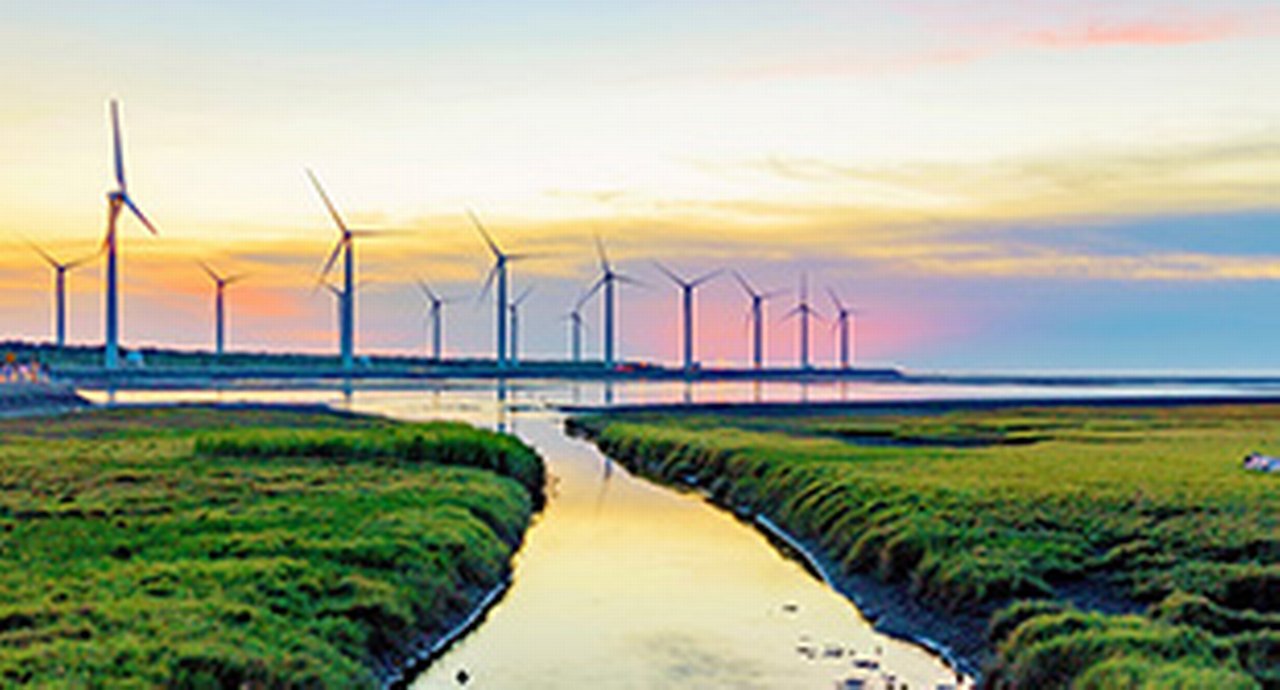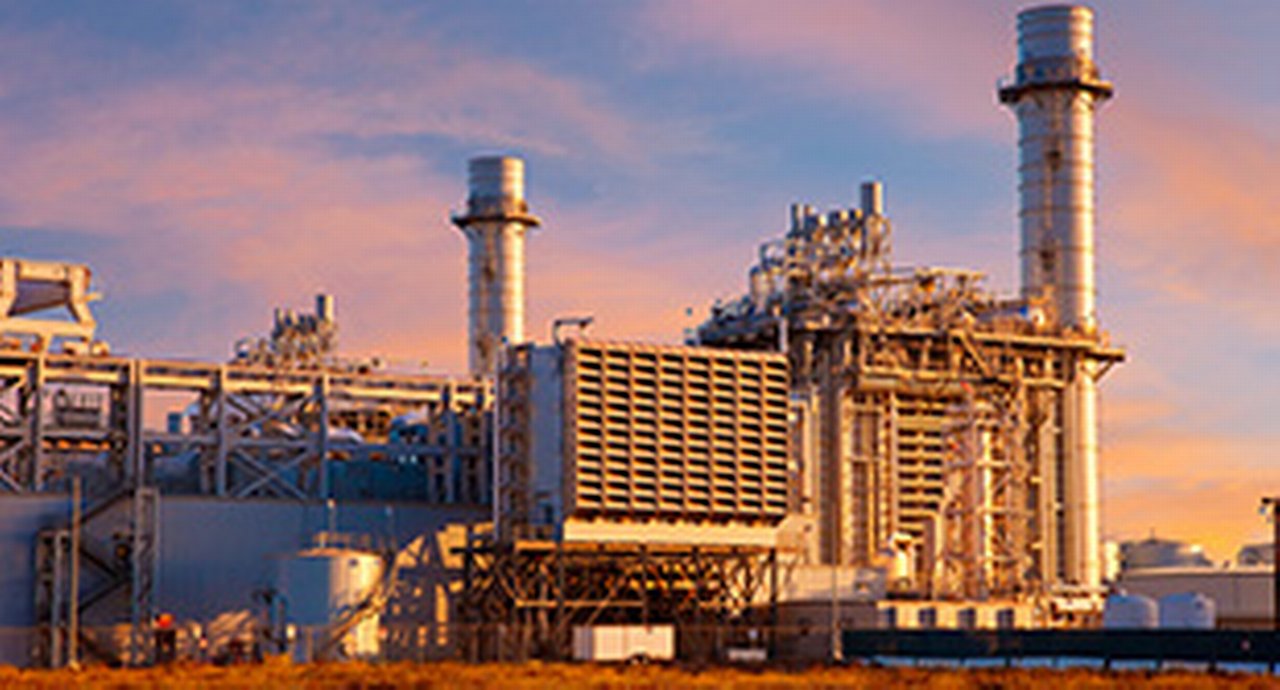1 February 2022
The recent surge in energy prices raises big questions: will Europe be able to secure its energy supply on the back of reduced investments in fossil fuels and ongoing geopolitical conflicts? And how can corporates best prepare for a prolonged period of elevated energy prices? flow’s Desirée Buchholz reports
MINUTES min read
Spikes in energy prices have been a common phenomenon for decades. As the global economy recovers from the Covid-19 pandemic faster than expected1 and a cold winter drives up demand for energy, one would expect some degree of cyclical and seasonal increase in global energy prices.
Yet, the volatility that gas markets experienced last December is unprecedented: On 21 December 2021, the price of gas futures on the Dutch Title Transfer Facility (TTF), a European benchmark for natural gas trading, reached €179 per megawatt hour (MWh).2 At its peak level, gas prices in Europe had increased by 842% in 2021. This led to a demand shift from gas towards coal, which in turned propelled EU carbon prices to an all-time high of more than €90 per ton. This created additional cost pressures for manufacturers, power companies and airlines that need to purchase those carbon certificates.3
Even though natural gas and wholesale electricity prices have eased back from record levels at the end of last year (see Figure 1), markets are far from cooling down – and this is due to several structural reasons.

Figure 1: Wholesale and future prices for electricity and natural gas in the euro area
Source: The European Central Bank4
Firstly, gas prices are fired up by the uncertainty created by friction between Russia and the West. According to Fatih Birol, Head of the International Energy Agency (IEA), Russian gas company Gazprom reduced its exports to Europe by 25% year-on-year in the fourth quarter of 2021 despite high market prices and reduced spot sales, while other providers boosted them.5 “Today's low Russian gas flows to Europe coincide with heightened geopolitical tensions over Ukraine,” he added.
Secondly, European energy prices are not expected to fall as quickly as the latest rise due to the energy transition that the EU has kicked off as part of its Green Deal.6 By 2030, Brussels wants to double the share of renewable energy sources from the current figure of 20% to around 40%. While shutting down coal-fired electricity plants and cutting back dependency on oil is necessary to reduce CO2 emissions, the planned transition comes at a cost, as Isabel Schnabel, Member of the Executive Board of the ECB, recently pointed out.7
“The need to step up the fight against climate change may imply that fossil fuel prices will now not only have to stay elevated, but even have to keep rising”
“The need to step up the fight against climate change may imply that fossil fuel prices will now not only have to stay elevated, but even have to keep rising if we are to meet the goals of the Paris climate agreement,” she said at the 2022 Virtual Annual Meeting of the American Finance Association in January. “The combination of insufficient production capacity of renewable energies in the short run, subdued investments in fossil fuels and rising carbon prices means that we risk facing a possibly protracted transition period during which the energy bill will be rising.”
Liquidity and credit support are needed
So, what does this outlook mean for Germany? How does the current situation affect the competitiveness of local corporates? And what measures can they take to best prepare for a prolonged period of elevated energy prices?
“We are currently facing a ‘perfect storm’ of elevated demand, low supply, high taxation and a geopolitical conflict – and all this is taking place during energy transition,” says Marc Müller, Head of Corporate Coverage for Germany, Austria and Switzerland at Deutsche Bank. Germany will have shut down its remaining nuclear power plants by the end of this year8, while the newly formed government plans to accelerate the phasing out of coal production by 2030 instead of 20389.
“We see utilities bolster liquidity buffers and collateral capacity”
In the short term, there are three risks, that German companies face:
Risk 1: Liquidity shortage
This is particularly true for utilities, producers and commodity traders as these companies typically hedge their exposure to price changes with derivatives. But “with high price volatility, they might face higher liquidity in-/outflows due to margin calls and increased collateral requirements,” Müller explains. “This is why we see utilities bolster liquidity buffers and collateral capacity.”
The cash demand can either be satisfied via new liquidity lines or by tapping capital markets, he says. Alternatively, Müller observes, trade guarantees are also becoming more popular as collateral.
For commodity traders, the situation is slightly more complex, says Frank Uhlen, Head of Corporate Coverage Commodity Traders EMEA at Deutsche Bank: While “higher volatility is usually beneficial for commodity traders allowing for arbitrage opportunities which could result in increased profits”, the general increase in commodity price levels combined with unprecedented high volatility though is stressing balance sheets and posing significantly elevated liquidity risks.
“If these companies have a proper risk management in place and can secure the required liquidity to meet their margin call obligations, they potentially can even benefit mid-term”, Uhlen says, as “some commodity houses likely sit on favorable assets waiting for profit realisation over time”.

Risk 2: Increasing costs
The second risk – increasing energy costs – is something that affects energy-intensive industries such as, for example, manufacturing, chemical or steelmakers. “These companies are facing significant profitability challenges, in case of continued elevated energy cost,” says Müller. “We, as a bank are helping our customers to bridge these difficult times.” According to Müller, additional limits have been allocated in order to ensure liquidity (for collateral) and lending (for financing alternative energy supplies) is available when needed. “In the energy crisis, we will be part of the solution just like we have been during the pandemic.”
At the same time, he states, that the German government should consider a “re-opening of KfW pandemic toolbox” to support the economy.10 “During the pandemic, we saw that our government has successfully provided financial support,” Müller says. “In the energy market, this would also be possible by accelerating the incentive to drive the energy transformation. This would not only foster innovation and technological leadership but simultaneously lower the dependency on current energy supplies. In addition, temporarily lowering energy taxes could be a short-term measure to relax the pressure on consumers and assist the competitiveness of Corporate Germany.”
Risk 3: Energy supply disruption
The third risk – a disruption of the energy supply, which would of course be the most extreme and least likely – would affect every company. On 22 January 2021, German gas storage facilities were less than 42% full, which is the lowest value for at least 10 years.11
Germany currently imports around two thirds of its total energy consumption from abroad. For gas, Germany receives more than half of its supply from Russia12 – which is why the country and its economy are particularly exposed to the risk that Russian President Vladimir Putin might turn the gas taps off as a bargaining tool in the diplomatic talks with Ukraine.
Should that happen, the big question is who could step in to fill the gap. Norway, which is Germany’s second biggest gas supplier and accounts for one third of the country’s consumption, “currently delivers as much as we can”, according to its prime minister Jonas Gahr Støre in a 20 January interview with the German newspaper Frankfurter Allgemeine Zeitung13.
Germany’s dependency on energy imports will increase
“German electricity prices are already among the highest in the world and considerably above the EU average. This weighs on Germany’s position as an economic hub”
While increasing electricity prices are not just a German phenomenon14, the level Germany comes from is much higher, says Stefan Schneider, Chief German Economist at Deutsche Bank: “German electricity prices are already among the highest in the world and considerably above the EU average”, he reflects. “This weighs on Germany’s position as an economic hub.”
According to the Deutsche Bank Research report, For a more successful energy transition: Down with electricity prices published in September 2021, gross prices (i.e. prices including taxes and fees) for commercial customers were 43% above the EU average in H2 2020 - although after excluding taxes and fees, the difference amounted to only about 8%.
Schneider therefore recommends that policymakers reduce the state components of electricity prices as quickly as possible. “They could, for example, abolish the renewable energy surcharge.” According to him, this would be necessary to enhance private investment to shift those industrial processes, currently still reliant on coal, natural gas or oil, to using electricity from renewable sources. Right now, coal still dominates the German energy mix, followed by wind power and nuclear energy (see Figure 2).

Figure 2: German energy mix
Source: https://bit.ly/3fXysc9 at destatis.de
“It is therefore foreseeable that Germany will have to rely on energy imports even more in the future, given the problem of weather-dependency of wind and photovoltaic and the lack of high-performance and cost-efficient industrial-sized power storage technologies,” notes Schneider. For German corporates this means that the challenges of dealing with energy supply and prices are unlikely to vanish soon.
Sources
1 See https://bit.ly/3fYQBGm at oecd.org
2 See https://bit.ly/3IEpi0r at theice.com
3 See https://bit.ly/33ZUcl0 at spglobal.com
4 See https://bit.ly/3rTVlmn at ecb.europa.eu
5 See https://cnn.it/3o1AU5E at cnn.com
6 See https://bit.ly/3u4sLkE at ec.europa.eu
7 See https://bit.ly/3g3gAfK at ecb.europa.eu
8 See https://bit.ly/3G63F7i at euronews.com
9 See https://bit.ly/3G9Bm8a at spglobal.com
10 See Germany’s lockdown lending at flow.db.com
11 See https://bit.ly/3r6T3Bb at agsi.gie.eu
12 See https://bit.ly/3ACSWR1 at statista.com
13 See https://bit.ly/3rXWCZk at faz.net
14 See https://bit.ly/3u2LYDr at iea.org
Corporate Bank solutions Explore more
Find out more about our Corporate Bank solutions
solutions
Stay up-to-date with
Sign-up flow newsbites
Choose your preferred banking topics and we will send you updated emails based on your selection
Sign-up Sign-upSubscribe Subscribe to our magazine
flow magazine is published annually and can be read online and delivered to your door in print
You might be interested in
TRADE FINANCE, SUSTAINABLE FINANCE
Driving ESG initiatives through sustainable finance Driving ESG initiatives through sustainable finance
Greening the supply chain is a trend to enhance competitiveness, says Deutsche Bank’s Rachel Chia, Head of Project Finance, Renewables (Asia Pacific) in a recent interview with The Asset’s Chito Santiago. flow shares her insights
TRADE FINANCE, MACRO AND MARKETS
Greening the supercycle Greening the supercycle
Are we heading for another commodities supercycle? One could be forgiven for thinking this was just around the corner given some of the bounce-backs in prices, but ESG priorities and liquidity shortfalls bring different nuances, flow’s Clarissa Dann reports
Sustainable finance, Trade finance and lending
Towards 2050: the case for gas Towards 2050: the case for gas
The COP26 summit saw governments commit to achieving Net Zero by 2050, but this will prove “incredibly difficult to achieve”, a recent Deutsche Bank Research report concludes. flow’s Clarissa Dann examines why its analysts believe that although the world’s appetite for coal and oil must be cut, gas plays a vital role in keeping the lights on



